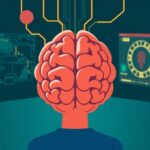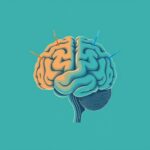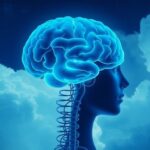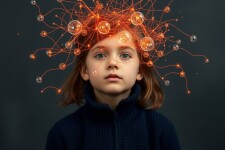Dreams have fascinated humanity for thousands of years. From ancient civilizations interpreting visions in sleep as messages from gods to modern scientific studies, the question remains: can dreams predict the future? This compelling idea invites us to explore the fascinating world of dreams and their potential link to future events. Many people have experienced what they believe are premonitions or glimpses of things to come during their sleep, sparking curiosity and debate. In this article, we will delve deep into whether dreams can predict the future, examining historical views, scientific perspectives, psychological explanations, and some remarkable anecdotal cases that continue to fuel this mystery.
The Enigmatic Nature of Dreams
Everyone dreams, but only some remember or interpret their dreams in meaningful ways. Dreams are a natural part of the sleep process, typically occurring during the rapid eye movement (REM) phase. They are often vivid, emotional, and sometimes bizarre narratives that unfold in our sleeping minds. But what exactly are dreams?
Psychologists generally agree that dreams reflect our subconscious mind—processing thoughts, emotions, fears, and desires. Some view dreams as a way for our brain to organize memories and information gathered throughout the day. Others find symbolic meaning in dreams, using them as a tool for self-discovery or problem-solving. However, the idea that dreams might predict the future remains controversial and harder to explain through conventional scientific methods.
A Brief History: Dreams and Prophecy
Throughout history, cultures across the world have believed dreams hold prophetic powers. Ancient Mesopotamians recorded their dreams as messages from gods, believed to foretell events like harvests or invasions. The Egyptians developed a complex dream interpretation system, treating dreams as direct communications from the divine.
In Greek culture, oracles and seers often relied on dreams to guide their predictions. The Bible references several instances where dreams foretell future events, such as Joseph’s visions predicting famine. Even in the Middle Ages and Renaissance periods, dreams were considered powerful spiritual or supernatural insights.
This shared cultural belief shapes much of why the idea that dreams predict the future resonates so strongly, even today.
Scientific Perspectives: Can Dreams Truly Predict the Future?
Science often takes a more skeptical view. The fundamental question: how could the brain know the future during sleep? Neuroscientists study dreams by observing brain activity, particularly in the REM phase, where most vivid dreaming occurs.
Most researchers suggest that dreams do not predict the future in a supernatural or paranormal sense. Instead, what some interpret as prophetic dreams may be a combination of coincidence, subconscious pattern recognition, or even memory errors. For example:
- Pattern Recognition: Your brain constantly detects patterns and probabilities. Sometimes, your dream might visualize possibilities based on clues you’ve picked up subconsciously, which later appear to come true.
- Memory Bias: You may remember the “hit” and forget the “misses” when recalling dreams, giving a skewed impression that dreams predict the future more often than they do.
- Confirmation Bias: People tend to pay attention to information that confirms their beliefs. If you believe dreams predict the future, you’re more likely to notice when that seems true.
Recent experimental studies have struggled to prove any reliable connection between dreaming and future events. Many scientists agree dreams primarily reflect current concerns, emotions, and thoughts, rather than a supernatural foresight.
Types of Dreams That People Often Believe Predict the Future
Despite skepticism, countless stories describe dreams that seem miraculously accurate. What kinds of dreams are most commonly linked to future predictions? Here are a few categories that often come up:
| Type of Dream | Description | Examples |
|---|---|---|
| Premonitory Dreams | Dreams that foresee a specific event, often involving danger, death, or disaster. | Dreaming of a loved one’s accident hours before it happens. |
| Precognitive Dreams | Dreams that provide insight or information about future events not known to the dreamer at the time. | Dreaming of winning the lottery or meeting someone new who later appears. |
| Symbolic or Metaphorical Dreams | Dreams that use symbols or metaphors to hint at upcoming decisions or changes. | Dreaming of crossing a bridge, which represents a life transition soon to take place. |
Famous Anecdotes of Dreams Predicting the Future
Over the years, many intriguing stories have emerged about dreams seemingly predicting the future with uncanny accuracy. These accounts often blur the lines between coincidence, intuition, and the mysterious powers of the subconscious mind.
One famous case is that of Abraham Lincoln. Before his assassination, he reportedly dreamt of his own death. He described a vision of a coffin in the White House and an unseen mourner weeping beside it. This dream disturbed him deeply, leading many historians to speculate about the significance of his premonition.
Another compelling example comes from author Edgar Allan Poe, who wrote about a dream where he foresaw the fate of his own work. While this could be literary imagination, many consider it an instance of intuitive foresight related to dreams.
Modern stories also abound. People have dreamed of natural disasters, accidents, or unforeseen events, later recalling these dreams as warnings or messages from beyond. Some skeptics argue these cases happen because of the brain’s ability to unconsciously predict likely future outcomes based on various clues.
How Psychology Explains Dreams About the Future
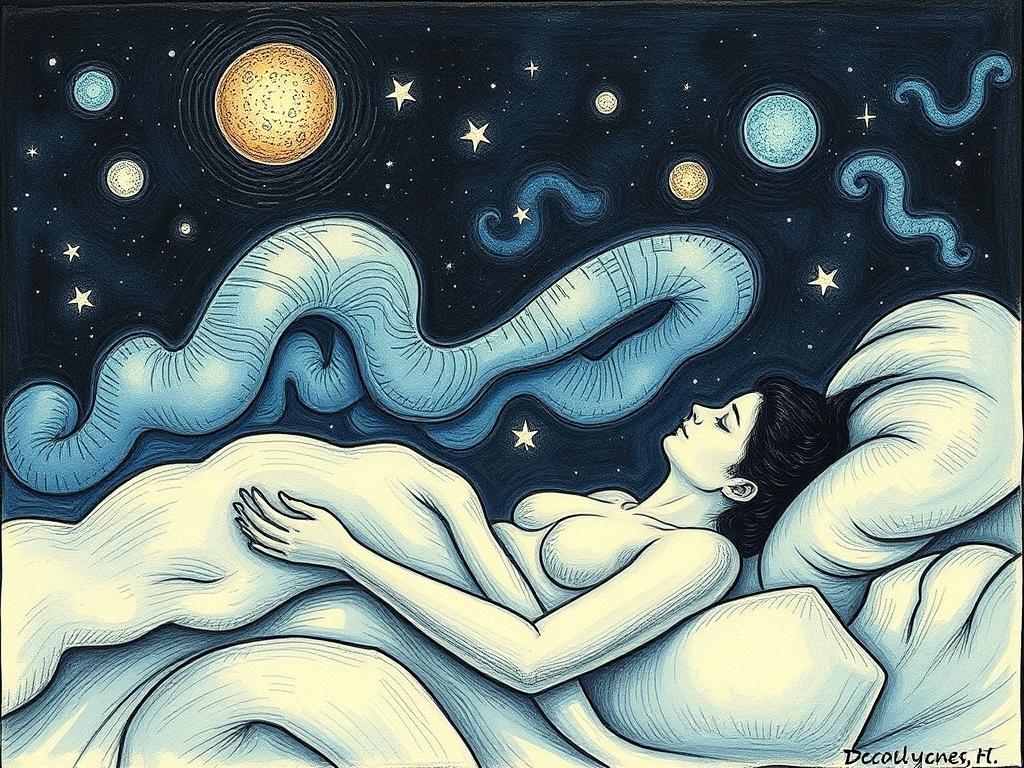
Psychology offers useful insights into why dreams sometimes appear predictive. Dream researchers recognize that dreams reflect our mental states, feelings, and daily experiences, which may include worries about the future.
Here’s how psychology breaks down the phenomenon:
- Anticipatory Anxiety: When people worry about a specific outcome—like an exam, a job interview, or a relationship—their brain simulates possible scenarios during sleep, some of which may come true.
- Subconscious Problem-Solving: Dreams can help sort through unresolved questions or challenges. Sometimes what seems like “predicting the future” is the mind’s way of anticipating likely events based on current knowledge.
- Memory Reconstruction: Our memories are malleable. When recalling dreams and events, the mind often alters details to fit current reality, making a past dream seem prophetically accurate when it wasn’t.
Psychologists also study phenomena like déjà vu and intuition, which are connected to how our brain processes time and experience, sometimes creating an illusion of foreknowledge.
Are There Scientific Methods to Test If Dreams Can Predict the Future?
Due to the subjective and unpredictable nature of dreams, scientifically testing their predictive power is challenging. However, some researchers have attempted to investigate this through experiments.
One approach is to record dreams over time and compare them to actual future events to find statistical correlations. Unfortunately, it’s difficult to derive conclusive results because:
- Many dreams are vague or symbolic.
- Events in waking life are influenced by countless factors, not just dreams.
- Confirmation bias and selective memory skew the interpretation of outcomes.
Another method involves controlled studies where participants try to dream of future targets or images randomly selected but concealed from them. These experiments have generally failed to demonstrate any reliable clairvoyance or precognition via dreams.
Still, the search continues, as the human desire to understand the future and unlock the secrets of dreams remains strong.
How to Interpret Your Own Dreams for Possible Future Insights

Many people keep dream journals, hoping to uncover messages hidden in their night visions. What practical steps can you take to interpret your dreams with the idea that they might predict the future or reveal important insights?
Consider the following tips:
- Write Dreams Down Immediately: Capture all details before they fade to increase accuracy.
- Look for Patterns: Recurrent themes or symbols may relate to your waking life or upcoming events.
- Consider Your Emotions: The feelings in a dream can reveal your intuition and concerns more than the literal imagery.
- Research Common Symbols: Dream dictionaries or psychological interpretations can add depth.
- Discuss with Others: Talking about your dreams can offer new perspectives and interpretations.
Remember, even if your dreams do not literally predict the future, exploring them can provide valuable guidance and self-awareness.
The Role of Culture and Belief in Dream Interpretation
It’s important to realize that how we view dreams is deeply influenced by cultural beliefs and personal faith. In some societies, dreams are still seen as sacred portals to the future, while in others, they’re regarded as random brain activity.
Beliefs about dream prediction vary widely:
| Culture/Tradition | View on Dreams Predicting the Future |
|---|---|
| Ancient Egyptians | Dreams are divine messages with predictive powers. |
| Native American Tribes | Dreams and visions guide decisions and warn of future dangers. |
| Western Modern Science | Dreams reflect subconscious thoughts, not supernatural knowledge. |
| Islamic Tradition | Certain dreams are considered true visions that can foretell future events. |
This cultural lens shapes how people perceive the significance of their dreams and the possibility of future prediction.
The Connection Between Lucid Dreaming and Future Prediction

Lucid dreaming—when you become aware that you are dreaming while still asleep—adds another fascinating dimension to this topic. Some lucid dreamers report being able to explore potential futures or solve problems in their dreams consciously.
Could lucid dreaming enhance our ability to predict the future? While there is no scientific proof, lucid dreaming allows greater control over the dream narrative and might help with mental rehearsal of possible scenarios, which could feel like glimpsing the future.
Some therapists use lucid dreaming techniques to help patients confront fears or rehearse positive outcomes. Although it’s not the same as prophecy, this practice shows how dreams can be a valuable tool in personal growth and decision-making.
Common Misconceptions About Dreams and Future Prediction
With so much fascination around dreams and future prediction, misconceptions abound. It’s important to clarify what dreams are not:
- Not Always Literal: Dreams are rarely straightforward predictions; symbolism is common, so interpreting them literally can be misleading.
- Not Always Reliable: Even if a dream seems accurate once, it doesn’t guarantee future dreams will be prophetic.
- Not a Substitute for Decision-Making: Dreams can be insightful but should not replace careful planning or professional advice.
- Not Proof of Paranormal Powers: Extraordinary claims require extraordinary evidence, which is lacking regarding dreams and prediction.
By approaching the topic with open curiosity but critical thinking, we respect both the mystery and the limits of dreams.
Summary Table: Pros and Cons of Believing Dreams Predict the Future
| Pros | Cons |
|---|---|
|
|
Conclusion
The question, “Can dreams predict the future?” remains a captivating mystery wrapped in layers of psychology, culture, and personal experience. While science has yet to confirm supernatural precognition through dreams, the powerful role of dreams in helping us process emotions, fears, and hopes is undeniable. Dreams may not be crystal balls revealing what is to come, but they serve as mirrors into our subconscious mind, sometimes uncovering insights we might overlook in waking life. Whether you view dreams as divine messages, psychological signals, or simply entertaining nightly stories, they invite us to listen more closely to ourselves and consider the rich inner life we carry within. So the next time you awake from a vivid dream, ask yourself: could this be a glimpse into the future, a reflection of the present, or simply the marvelous workings of the sleeping mind? The answer might just lie in how you choose to interpret it.






